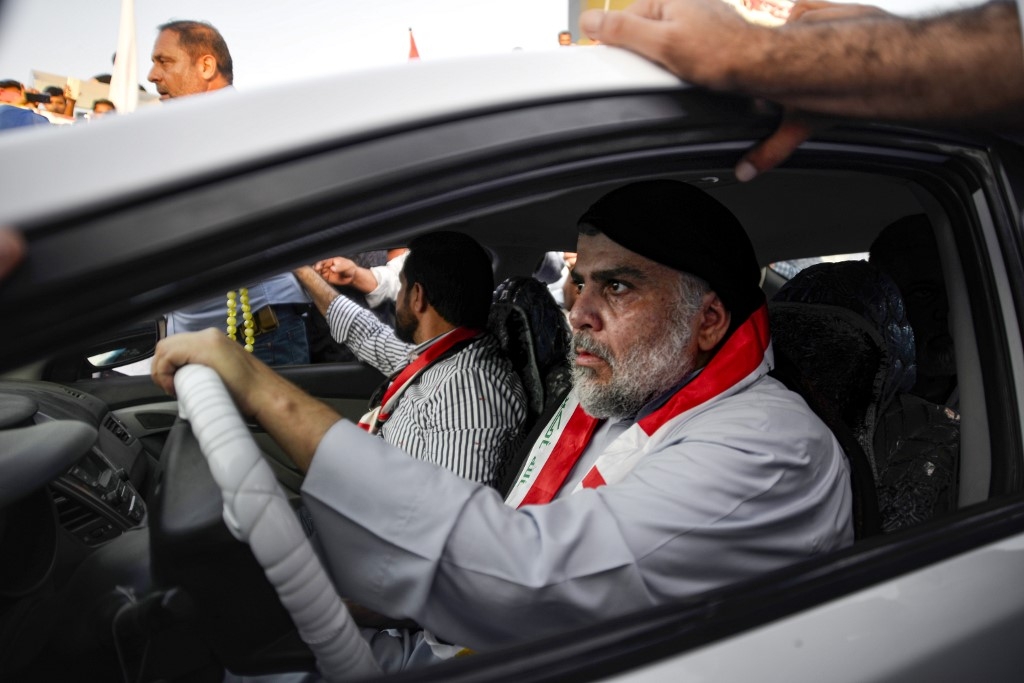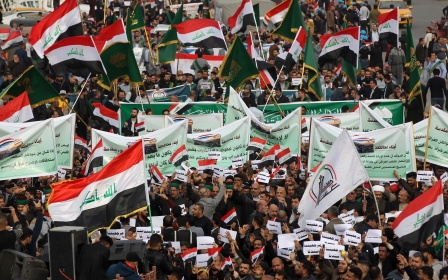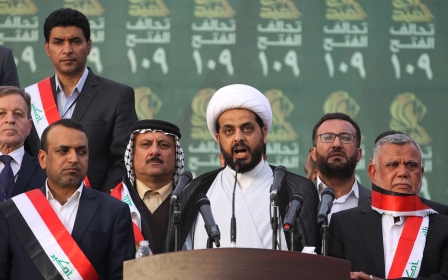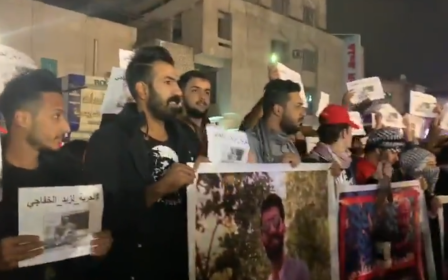Drone bombs home of prominent Iraqi cleric as protests death toll rises

A drone dropped a bomb on the home of prominent Iraqi Shia cleric Moqtada al-Sadr in the holy city of Najaf early on Saturday, but he was not in the country, sources within his party told AFP news agency.
Sadr has backed protests against corruption, unemployment and a lack of public services that have rocked Baghdad and the country's south since the beginning of October.
Sadr was in Iran at the time of the drone attack, a source in his office told Reuters news agency.
The drone attack came one day after he sent his supporters into the streets of the capital overnight to "protect protesters" after unidentified gunmen attacked a protest camp, killing at least 24 people, including four police officers.
The attack took place late on Friday when armed men took over a large building that protesters had been occupying for several weeks near al-Sinak bridge in the capital.
Witnesses told AFP news agency that gunmen in pick-up trucks attacked the building and forced the protesters from it.
More than 127 others were wounded by the gunfire and stabbings targeting anti-government protesters near Tahrir Square, police and medical sources told Reuters news agency.
It was not immediately clear if the gunmen belonged to any political or militia groups.
According to witnesses who spoke to Reuters news agency, more unknown gunmen drove in a convoy down the main riverside street leading to Tahrir Square, firing a volley of shots in the direction of the protests on Saturday morning.
The heavily armed, masked gunmen roamed the street near Tahrir Square and attempted to advance into it but were eventually turned around at a checkpoint manned by Iraqi security forces, witnesses told the news agency.
A spokesman for Sadr's party said on Saturday that the incidents were aimed at pressuring both protesters and political leaders to accept whichever candidate is nominated for the premiership by the ruling elite.
"The Sinak massacre and the bombing of [Sadr's home] is geared at pushing the acceptance of the candidate for prime minister," said Jaafar al-Mousawi.
Protesters had feared an escalation of violence after supporters of the pro-Iran Hashed al-Shaabi paramilitary force descended on Tahrir Square on Thursday.
Three demonstrators and a witness told the Associated Press that at least 15 knife attacks took place in Tahrir Square and that the pro-militia groups withdrew from the area later that day.
More than 430 demonstrators have been killed and tens of thousands wounded in a crackdown by Iraq's security forces since the start of the uprising.
Last week, Prime Minister Adel Abdul Mahdi said he would resign amid the months-long protest movement; yet the announcement has done little to quell the protests.
On Friday, the United States blacklisted three Iran-backed Iraqi paramilitary leaders over their alleged role in the deaths of anti-government protesters. Washington said the sanctions were part of an effort to counter Iranian influence in Iraq.
Middle East Eye propose une couverture et une analyse indépendantes et incomparables du Moyen-Orient, de l’Afrique du Nord et d’autres régions du monde. Pour en savoir plus sur la reprise de ce contenu et les frais qui s’appliquent, veuillez remplir ce formulaire [en anglais]. Pour en savoir plus sur MEE, cliquez ici [en anglais].




